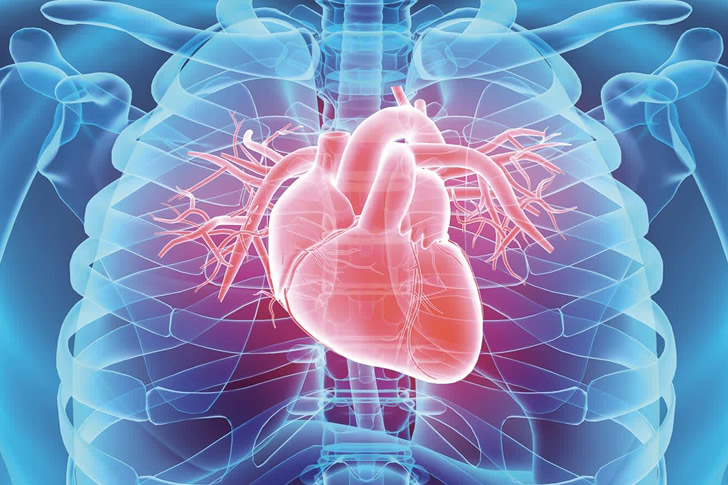Heart Disease: Types, Causes, and Treatments
Heart disease is a leading cause of death worldwide, affecting millions of people annually. Understanding its types, causes, and treatments can help in managing and preventing this prevalent health issue.

Introduction to Heart Disease
Heart disease encompasses various conditions affecting the heart’s structure and function. It is the leading cause of death in many countries, including the United States, where it accounts for about one in every four deaths. Recognizing the different types of heart disease, understanding their causes, and exploring treatment options are crucial for improving cardiovascular health.
Types of Heart Disease
Heart disease can manifest in several forms, each with distinct characteristics and implications. The most common types include:
1. Coronary Artery Disease (CAD)
Coronary artery disease is the most prevalent type of heart disease, occurring when the coronary arteries, which supply blood to the heart muscle, become narrowed or blocked due to plaque buildup. This condition can lead to chest pain (angina), heart attacks, and heart failure.
- Fact: CAD is responsible for more than 370,000 deaths annually in the United States alone.
2. Heart Failure
Heart failure, also known as congestive heart failure, occurs when the heart cannot pump enough blood to meet the body’s needs. It can result from conditions such as CAD, high blood pressure, and diabetes.
- Fact: Over 6.2 million adults in the United States have heart failure, according to the Centers for Disease Control and Prevention (CDC).
3. Arrhythmias
Arrhythmias are abnormal heart rhythms caused by issues with the heart’s electrical system. Common types include atrial fibrillation (AFib), bradycardia (slow heart rate), and tachycardia (fast heart rate).
- Fact: Atrial fibrillation affects an estimated 2.7 to 6.1 million people in the United States.
4. Valvular Heart Disease
Valvular heart disease involves damage to one or more of the heart’s valves, which can affect blood flow through the heart. Conditions include aortic stenosis, mitral valve prolapse, and regurgitation.
- Fact: Approximately 2.5% of the U.S. population is affected by valvular heart disease.
5. Cardiomyopathy
Cardiomyopathy refers to diseases of the heart muscle that make it harder for the heart to pump blood. Types include dilated cardiomyopathy, hypertrophic cardiomyopathy, and restrictive cardiomyopathy.
- Fact: Cardiomyopathy is a significant cause of heart failure and arrhythmias.
Causes of Heart Disease
The causes of heart disease vary depending on the type but often include a combination of lifestyle factors, genetic predisposition, and other health conditions. Common causes include:
1. Atherosclerosis
Atherosclerosis, the buildup of fatty deposits (plaque) in the arteries, is a primary cause of CAD and peripheral artery disease. It results from high cholesterol, high blood pressure, smoking, and other factors.
- Fact: High cholesterol affects nearly 94 million U.S. adults over age 20.
2. High Blood Pressure
Hypertension, or high blood pressure, forces the heart to work harder, leading to damage over time. It is a major risk factor for heart disease, stroke, and kidney disease.
- Fact: Nearly half of adults in the United States have high blood pressure.
3. Diabetes
Diabetes significantly increases the risk of heart disease. High blood sugar levels can damage blood vessels and the nerves that control the heart.
- Fact: Adults with diabetes are two to four times more likely to die from heart disease than those without diabetes.
4. Obesity
Obesity is linked to several risk factors for heart disease, including high blood pressure, diabetes, and high cholesterol.
- Fact: More than 42% of U.S. adults are considered obese, according to the CDC.
5. Lifestyle Factors
Unhealthy lifestyle choices, such as smoking, excessive alcohol consumption, poor diet, and physical inactivity, significantly contribute to the development of heart disease.
- Fact: Smoking increases the risk of coronary heart disease by 2 to 4 times.
Treatments for Heart Disease
Treatment options for heart disease vary depending on the type and severity of the condition but often include lifestyle changes, medications, and medical procedures.
1. Lifestyle Changes
Adopting a heart-healthy lifestyle is crucial in managing and preventing heart disease. Key changes include:
- Diet: Eating a balanced diet rich in fruits, vegetables, whole grains, lean proteins, and healthy fats can help lower cholesterol and blood pressure.
- Exercise: Regular physical activity strengthens the heart and improves overall cardiovascular health. Aim for at least 150 minutes of moderate-intensity exercise per week.
- Smoking Cessation: Quitting smoking can significantly reduce the risk of heart disease and improve overall health.
- Weight Management: Maintaining a healthy weight through diet and exercise can lower the risk of heart disease.
2. Medications
Various medications are used to treat heart disease, manage symptoms, and reduce the risk of complications. Common medications include:
- Statins: Lower cholesterol levels and reduce the risk of plaque buildup in arteries.
- Beta-blockers: Lower blood pressure and reduce the heart’s workload.
- ACE inhibitors: Help relax blood vessels and lower blood pressure.
- Antiplatelet agents: Prevent blood clots, reducing the risk of heart attacks and strokes.
3. Medical Procedures and Surgery
In some cases, medical procedures or surgery may be necessary to treat heart disease. Common interventions include:
- Angioplasty and Stenting: Open narrowed or blocked arteries and insert a stent to keep them open.
- Coronary Artery Bypass Grafting (CABG): Surgery to create a new path for blood to flow around blocked arteries.
- Valve Repair or Replacement: Procedures to repair or replace damaged heart valves.
- Implantable Devices: Pacemakers or defibrillators to manage arrhythmias and support heart function.
Conclusion
Heart disease is a complex and multifaceted health issue that requires a comprehensive approach to management and prevention. Understanding the types, causes, and treatment options is crucial for anyone affected by or at risk of heart disease. By adopting a heart-healthy lifestyle, staying informed about treatment options, and working closely with healthcare providers, individuals can improve their cardiovascular health and reduce the impact of heart disease on their lives.







Recent Comments